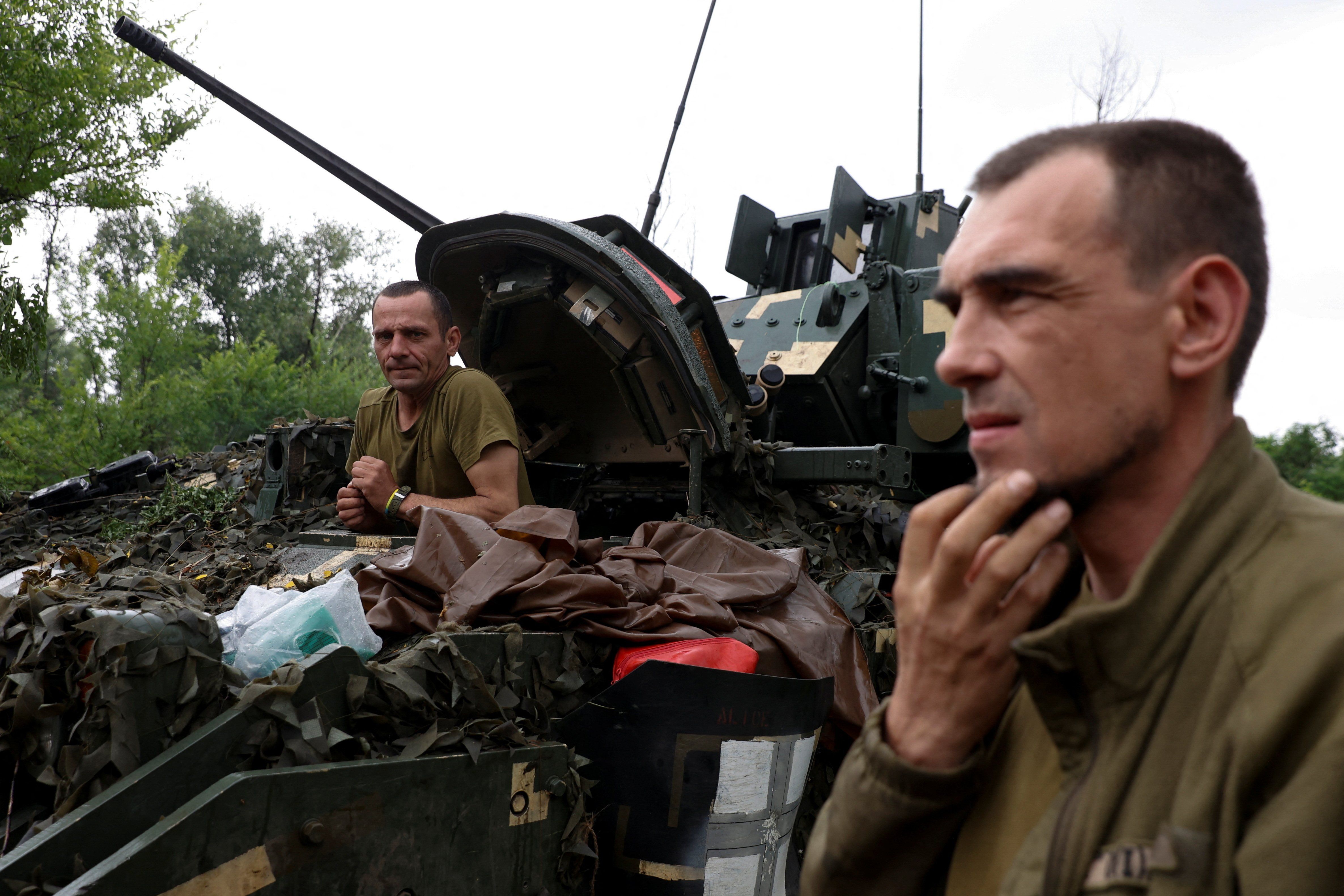As you read this, thousands of heavily armed, battle-hardened fighters are hunkered down somewhere in Ukraine. These men have fought fierce battles, killed many Ukrainians, and have now staged a mutinous (though abruptly aborted) march on Moscow.
Seventy-two hours after the weekend’s stunning developments in Russia, the Wagner Group remains a potent and disruptive force. But their commander is issuing rambling audio messages from an undisclosed location, President Vladimir Putin has offered them a deal, and we’re left with unanswered questions, some of them central to the future of the war in Ukraine.
Here’s a big one: What happens to the Wagner Group? This is the mercenary army that has done much of the heaviest and most successful fighting for Russia since the war in Ukraine began.
The steadily building showdown between Yevgeny Prigozhin, the group’s boss, and Russia’s government kicked into high gear on June 10 when the Defense Ministry announced that all "volunteer regiments" (read: mercenaries) must disband and sign contracts with the Defense Ministry by end of June. Putin reiterated that message a few days later.
Prigozhin said no. He doesn’t want the men he mockingly calls “carpet generals” to strip him of the highly profitable private military company he built. After all, this project has made him millions and brought him international fame he clearly enjoys.
On Monday, Putin made a short speech in which he hinted that Prigozhin is a traitor without naming him, and he again called on Wagner fighters to sign contracts with his Defense Ministry.
He also said they could go home or move to Belarus, though this part of the offer remains vague. Does he really want thousands of angry former convicts with proven combat skills walking the streets of Russian cities?
So ... having turned back from Moscow, what will these thousands of well-trained soldiers for hire do now?
It’s one thing to announce the end of Wagner Group’s efforts in Ukraine; it’s quite another to persuade these thousands of men to cooperate.
How many will sign Defense Ministry contracts? In Monday’s rambling 11-minute audio message, Prigozhin claimed that only a tiny fraction of his fighters will agree to this. The rest, he insists, will never sign.
Will the Wagner holdouts simply refuse to fight? Is it physically possible to arrest them on a battlefield?
Most are former prison inmates promised pardons by Prigozhin in return for fighting, and we can assume they now want their freedom. It won’t be easy to disarm them. Many might die in the attempt.
Can Putin allow Prigozhin to reconstitute part of his Wagner force in Belarus after calling him a traitor? Assuming that’s where Prigozhin is … or is heading. And that he remains alive.
For those who do sign on with the regular Russian military, their commanding officers can’t be confident they’ll carry out their orders. Prigozhin has told them these officers are incompetent and stupid. Nor can anyone be sure Wagner fighters will serve willingly alongside poorly trained conscripts who haven’t been part of the brutal fighting Wagner endured in the Ukrainian city of Bakhmut.
And will regular Russian soldiers accept Wagner fighters into their units? Remember, these men killed at least a dozen Russian airmen on Saturday by shooting down their helicopters.
What does all this mean for Ukraine? Wagner is, for now, the war’s big wildcard. We shouldn't overestimate their numbers. A force once estimated at 10,000 contracted soldiers and 40,000 convict recruits make up a small fraction of a broader Russian fighting force of hundreds of thousands of men. The fight for Bakhmut may have cut those numbers by half.
And Wagner is less important for Russian forces at the moment because their military is now relying on layers of dug-in defenses to absorb the blows from Ukraine’s counteroffensive rather than aggressive advances to take the fight to the Ukrainians.
But Ukraine appears to have made significant military advances on Monday. If it can exploit Russian disarray to score big gains in the coming weeks, and Russia then needs its most effective fighters to punch back, or if Russia can go back on offense in coming months, Wagner fighters will again become especially valuable. Where will those fighters be then?
Finally, what does this mean for Russia’s enemies beyond Ukraine? In January, Eurasia Group, our parent company, listed “Rogue Russia” as the top global geopolitical risk for 2023. EG forecast that Russia would use all available means to attack Western countries it can’t fight directly.
During his 23-year reign, Putin has never needed to project strength more than he does now. We saw that during his angry Monday speech. That might also explain why Russia intercepted two British fighter jets over the Black Sea on Monday – and why we might see a lot more of these confrontations soon.
But will Russia also intensify its non-military attacks – in cyberspace, for example, or through more aggressive interference in European and US politics – to accomplish that?
The West is on high alert too.
